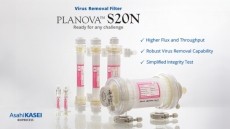Phosphagenics facility could lead to more deals
manufacturing plant in Melbourne, Australia - a project that paves
the way for future licensing agreements and could encourage the use
of its technology in more nutraceutical and pharmaceutical
products.
The Australian company already has a facility in Ontario that is operated under a contract manufacturing arrangement, as well as a pilot plant used for the initial development of its proprietary phosphorylation process.
Tocopheryl phosphates are an integral part of many of Phosphagenics' nutraceutical and pharmaceutical products, including Phospha E, an advanced form of vitamin E that is marketed for dietary supplement use in the US, Canada and Indonesia by Zila Nutraceuticals.
Just last month an option agreement with Swiss food giant Nestle was announced that may see Phospha E included in foods for metabolic syndrome, a condition for which it has shown promise for prevention and symptom alleviation in animal trials.
In exchange for the option, Nestle is contributing an undisclosed amount towards a preclinical study, prior to full-scale evaluation in humans. If it decides to exercise its option on completion of the trial a fee will be payable, and it will have a 12 month window following regulatory approval of the product and claims within which to bring a product to market.
Depending on the trial results, the A$500,000 (c €294,000) new facility could help assure Nestle - and other licensees, current or future - that Phosphagenics is in a position to fulfil demand.
The plant is expected to be operational before this year is out, and will have an annual capacity of tonnes of tocopheryl phosphates - with an estimated value of $25m (c €14.7m).
Such capacity is above and beyond current demand, but the company is clearly banking on a need to step up production in the future as more agreements fall into place, and new markets for its products open up.
"The new plant will demonstrate our capability to manufacture on a commercial scale for current and future licensing partners," said COO Ian Pattison.
As well as the Zila agreement, Phosphagenics has a deal with ISP for the use of Phospha-E in the personal care market.
It also signed a joint development programme with drug delivery company Alza Corporation in November 2005, under which Alza will fund investigations into delivery of compounds using Phosphagenics' transdermal delivery system, TPM-01.













